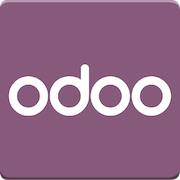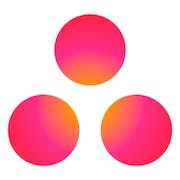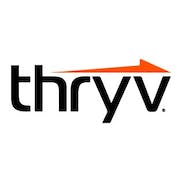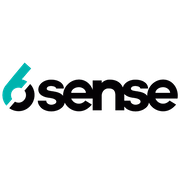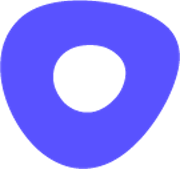Looking for the best predictive lead scoring software? Check out our comprehensive buyers guide to find the perfect solution for your business needs. Gain valuable insights and make informed decisions.
Are you tired of wasting your sales team's time and resources pursuing leads that never convert? Predictive lead scoring software might be the answer to your prayers. This powerful tool harnesses the power of artificial intelligence to analyze lead data and predict the likelihood of a lead converting. By automating the lead scoring process, it helps identify high-quality leads, enabling your sales team to focus on hot prospects that are most likely to convert. In this guide, we'll dive into everything you need to know about this innovation, from how it works to its benefits and key features. Discover how it can revolutionize your lead scoring process, increase your conversion rates, and ultimately boost your bottom line.
What is predictive lead scoring software?
Predictive lead scoring software is a tool that uses data analysis to predict which leads are most likely to convert into paying customers. It takes into account a variety of factors, including company size, industry, job title, and engagement with marketing materials such as emails and whitepapers, to give a score that represents a lead's likelihood to convert. Many companies rely on it to determine which leads are worth pursuing and allocating their resources towards.
Some of the most common use cases for predictive lead scoring technology include:
- Identifying top-performing leads: Predictive lead scoring software can help companies identify which leads are most engaged and likely to convert based on their past behavior and interactions with marketing materials.
- Prioritizing sales efforts: By determining which leads are most likely to convert, companies can prioritize their sales efforts to focus on those leads and allocate resources where they are most likely to have an impact.
- Improving marketing effectiveness: A predictive lead scoring system can also help companies understand which marketing efforts are most effective in generating high-quality leads.
- Optimizing sales and marketing budgets: By focusing resources on the most likely-to-convert leads, companies can optimize their sales and marketing budgets and maximize their return on investment.
Many different types of companies can benefit from using predictive lead scoring software, including B2B and B2C businesses across a wide range of industries. From startups looking to acquire new customers to established enterprises aiming to improve their customer acquisition process, this software has become an indispensable tool for many businesses. In short, it allows businesses to make data-driven decisions and increase their chances of success in an increasingly competitive marketplace.
What are the benefits of a predictive lead scoring solution?
It has become increasingly difficult for businesses to generate leads and distinguish between high and low-quality leads. Lead scoring technology is a revolutionary tool that can help businesses identify valuable prospects by measuring their behavior, preferences and buying patterns.
The benefits of using this tool are numerous and include:
- Improved sales productivity - By giving businesses insight into which leads are most likely to convert, this solution can help sales teams focus their time and resources on the best prospects, therefore improving their efficiency.
- Increased revenue - By prioritizing the leads with the highest potential to convert, businesses are better able to close more deals and generate more revenue.
- Enhanced customer experience - A predictive lead scoring platform can help businesses better understand their customers' needs and interests, allowing them to tailor their marketing efforts and improve the customer experience.
- Reduced churn - By identifying which leads are most likely to become loyal customers, businesses can reduce churn and increase customer retention.
- Better marketing ROI - By helping businesses identify the channels and tactics that are most effective at generating high-quality leads, a predictive lead scoring app can help businesses allocate their marketing budget more efficiently and improve their return on investment. Research has found the ROI for marketers investing in predictive intelligence solutions to be greater than 1,200%.
Predictive lead scoring software is a powerful tool that can give businesses a competitive edge by enabling them to prioritize leads based on their likelihood to convert and become loyal customers. With these benefits, businesses can improve their productivity, revenue, customer experience, and marketing ROI, making it a crucial tool for any modern business looking to scale and grow.
10 key features of predictive lead scoring software
With a wide range of options available on the market, it's important to know what features are available to ensure you select the best solution for your needs. Here are 10 common features you can expect from most predictive lead scoring solutions.
1. Machine learning algorithms - A predictive lead scoring solution uses machine learning algorithms to analyze large sets of data, including website activity, social media interactions, and historical sales data, to predict which leads are most likely to convert to customers.
2. Real-time scoring - Many predictive lead scoring software solutions update lead scores in real-time, so you always have access to the latest information on which leads are the most promising.
3. Integration with CRM - Most solutions offer seamless integration with popular CRM platforms like Salesforce, allowing your sales team to work directly with the most promising leads and access key data from a single location.
4. Customizable scoring criteria - Predictive lead scoring software allows you to tailor scoring criteria to fit the specific needs of your business, allowing you to adjust lead scores based on the unique attributes and behaviors of your target audience.
5. Lead prioritization - It prioritizes leads based on how likely they are to convert to customers, allowing your sales team to focus on the most promising leads and allocate their time and resources more effectively.
6. Automated lead nurturing - Many software solutions offer advanced lead nurturing features, such as automated drip campaigns, that allow you to stay in touch with potential customers and keep them engaged throughout the sales process. While at first glance, lead scoring seems like a redundant process within the marketing cycle, according to Hubspot, a lack of lead nurturing contributes to the 79% of marketing leads that never convert into sales.
7. Predictive analytics - This tool utilizes advanced analytics tools to provide insights into the behavior of your target customer base and identify patterns that can help inform future sales strategies.
8. Lead segmentation - By segmenting leads based on common characteristics, such as location or industry, a predictive lead scoring program allows you to target your marketing efforts more effectively and achieve greater success with targeted campaigns.
9. Lead scoring visualization - Many solutions offer visualization tools that allow you to view lead scores and associated data in real-time, providing a quick and easy way to identify the most promising leads and track their progress.
10. Scalability - This tool is designed to be scalable, allowing businesses of all sizes to benefit from the technology. Whether you're a small startup or a large enterprise, solutions are available to fit your needs and help you achieve greater sales success.
By utilizing the 10 common features outlined above, you can select the software solution that best fits your needs, empowering your sales team to perform at their best and drive growth for your business.
Things to consider when buying a predictive lead scoring program
The ability to accurately predict and prioritize leads has become more crucial than ever before. As a result, more and more organizations are turning to predictive lead scoring technology to automate their lead qualification process and make data-driven decisions. But with so many options available on the market, how can businesses ensure they're choosing the right one for their needs? Here are a few key factors to consider:
1. Data sources
The accuracy of a predictive lead scoring system depends heavily on the quality and variety of data sources it pulls from. Make sure it integrates with your existing CRM and marketing automation platforms, along with any other relevant data sources (like social media or website analytics). The more data sources the software can access, the more accurate its predictions will be.
2. Customizability
Different businesses have different criteria for what constitutes a “good” lead. Look for a scoring system that allows for customizable lead scoring models that can be tailored to your specific needs. This will ensure that your sales team is prioritizing leads based on the criteria that matter most to your business.
3. Ease of use
The best one should be easy for your team to use and understand. Look for one that offers intuitive dashboards and reports, as well as clear explanations of how the application arrives at its predictions. You want a solution that empowers your team to make informed decisions, not one that creates confusion and frustration.
4. Integration with sales process
Predictive lead scoring should be an integral part of your sales process, not a separate, stand-alone tool. Look for software that integrates with your sales team's existing workflows and processes, rather than creating additional work or complicating the sales process.
5. Flexibility
As your business needs evolve, so will your lead scoring criteria. Make sure the one you choose allows for flexibility in criteria and can easily adapt to changes in your business processes.
By considering these key factors and investing in a quality predictive lead scoring software, businesses can gain a significant competitive advantage by focusing their sales efforts on the leads most likely to convert, while reducing the time and resources spent on dead-end leads.
Market trends for predictive lead scoring software
Predictive lead scoring software is continuously evolving with novel features and advanced technologies. As we move forward into 2024 and beyond, businesses should take note of the top trends in the market.
One of the biggest trends is the adoption of AI and Machine Learning in predictive lead scoring. With these technologies, businesses can get deeper insights into potential leads and their likelihood of converting.
Another trend is the use of analytics tools to gain greater visibility into sales funnel performance. Sales analytics can help sales teams connect with prospects using the right channels and messages to improve conversion rates.
Additionally, there is an increasing trend towards cloud-based solutions that offer greater scalability, flexibility, and cost-effectiveness. Finally, businesses can expect to see a greater emphasis on collaboration in predictive lead scoring, with tools that enable more streamlined communication and collaboration across teams.
Overall, keeping up with these trends will be vital for businesses looking to stay ahead in the highly competitive software market.
Conclusion
To conclude, investing in predictive lead scoring software can significantly enhance any company's marketing and sales efforts. This technology leverages data analytics and machine learning to prioritize leads based on their likelihood to convert, optimizing resource allocation and increasing conversion rates. By integrating predictive lead scoring into your strategy, you can streamline your sales process, improve customer targeting, and ultimately drive more revenue. As with any investment, it's crucial to thoroughly evaluate different software options to find the one that best fits your business needs and objectives. Consequently, businesses can allocate resources more effectively, reduce acquisition costs, and achieve higher revenue growth.

